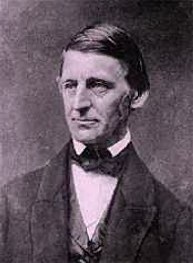
Law and its many connections -- law and literature, love, lollipops, & fun, law and everything else under the sun
Notes: 1) LawAndEverythingElse.Com & BurtLaw.Com don't solicit business for any law firm or give legal advice, other than that lawyers may be hazardous to your health. There are many more bad ones than good ones. Who can find a virtuous lawyer? Her price is far above rubies. It is easier for a camel to pass through a needle's eye than for a lawyer to inherit the Kingdom of Heaven. So saith the Lord. 2) In linking to another site or source, we don't mean to say we necessarily agree with views or ideas expressed there or to attest to the accuracy of facts set forth there. We link to other sites in order to alert you to sites, ideas, books, articles and stories that have interested us and to guide you in your pleasure-seeking, mind-expanding, heart-opening, soul-satisfying outer and inner travels.
Ralph Waldo's Laws
|
|
BurtLaw.Com
|
- LawAndEverythingElse.Com - Copyright (c) 2006 Burton Randall Hanson
|
 If I had to pick one writer whose writings have influenced me most, I'd pick Emerson. The list of people he influenced is long, and includes some of my favorite writers, e.g., Thoreau, William James, Robert Frost, and Wallace Stevens. His influence continues. He was a contemporary of many of our great writers during the "Flowering of New England," including Hawthorne, Melville, and Longfellow. One of these was Dr. Oliver Wendell Holmes, a medical educator at Harvard and wildly-popular author, as well as father of the great Supreme Court Justice of the same name. Emerson's thinking and some of his style are reflected in Justice Holmes' opinions and other writings, including his extraordinary letters. For example, consider this November 1842 entry from Emerson's journal: "Do not be timid and squeamish about your actions. All life is an experiment....What if you do fail, & get fairly rolled in the dirt once or twice? Up again, you shall never more be so afraid of a tumble." Compare it with this from Holmes' great dissent in Abrams v. United States, 250 U.S. 616 (1919): "[T]he best test of truth is the power of the thought to get itself accepted in the competition of the market....That at any rate is the theory of our Constitution. It is an experiment, as all life is an experiment. Every year if not every day we have to wager our salvation upon some prophecy based upon imperfect knowledge. While that experiment is part of our system I think that we should be eternally vigilant against attempts to check the expression of opinions that we loathe..." Emerson's voice is a revolutionary, true, pure American voice.
If I had to pick one writer whose writings have influenced me most, I'd pick Emerson. The list of people he influenced is long, and includes some of my favorite writers, e.g., Thoreau, William James, Robert Frost, and Wallace Stevens. His influence continues. He was a contemporary of many of our great writers during the "Flowering of New England," including Hawthorne, Melville, and Longfellow. One of these was Dr. Oliver Wendell Holmes, a medical educator at Harvard and wildly-popular author, as well as father of the great Supreme Court Justice of the same name. Emerson's thinking and some of his style are reflected in Justice Holmes' opinions and other writings, including his extraordinary letters. For example, consider this November 1842 entry from Emerson's journal: "Do not be timid and squeamish about your actions. All life is an experiment....What if you do fail, & get fairly rolled in the dirt once or twice? Up again, you shall never more be so afraid of a tumble." Compare it with this from Holmes' great dissent in Abrams v. United States, 250 U.S. 616 (1919): "[T]he best test of truth is the power of the thought to get itself accepted in the competition of the market....That at any rate is the theory of our Constitution. It is an experiment, as all life is an experiment. Every year if not every day we have to wager our salvation upon some prophecy based upon imperfect knowledge. While that experiment is part of our system I think that we should be eternally vigilant against attempts to check the expression of opinions that we loathe..." Emerson's voice is a revolutionary, true, pure American voice."Nothing astonishes men so much as common sense and plain dealing."
"[A]ll nature helps him who speaks the truth. Speak the truth & the very roots of the grass...move & stir to bear you witness. Speak the truth & the innocent day loves you & serves you." (Journal, 06.18.1838)
"[L]awyers...are a prudent race though not very fond of liberty." (Journal, 04.1850)
"In the hour of spiritual pride when, unsuspecting, &, as it were, of course, we don the judgment robes, let it qualify the sentence that damns my brother, that I have been him & presently shall very naturally become him again." (Journal, 05.13.1838)
"Beware of Engagements. Learn to say no." (Journal, 10.27.1851)
"One of the cardinal rules is Timeliness." (Journal, 05.1851)
"[A]ll the theory in the world is vain without the thumb of practice. What could Coke or Blackstone do against the bullies of the Middlesex Bar...?" (Journal, 01.1852)
"He weakens who means to confirm his speech by vehemence...." (Journal, 05.29.1835)
"We have no guess what we are doing, even...when we do our best; perhaps it will not appear for an age or two...: then, the dim outline of the reef & new continent we madrepores were making, will sketch itself to the eyes of the dullest sailor." (Journal, 01.1861)
"Minds of low & surface power pounce on some fault of expression, of rhetoric, or petty mis-statement of fact, and quite lose sight of the main purpose." (Journal, 01.1858)
"'Your reading is irrelevant.' Yes, for you, but not for me. It makes no difference what I read. If it is irrelevant, I read it deeper. I read it until it is pertinent to me & mine, to nature & to the hour that now passes. A good scholar will find Aristophanes & Hafiz & Rabelais full of American history. I believe in Omnipresence & find footsteps in Grammar rules, in oyster shops, in church liturgies, in mathematics, and in solitudes & in galaxies...." (Journal, 03.1847)
"Genius is out of place when it reposes fifty years on chairs of state & inhales a continual incense of adulation. Its proper ornaments & relief are poverty & reproach & danger." (Journal, 01.23.1834)
"The truest state of mind, rested in, becomes false. Thought is the manna which cannot be stored. It will be sour if kept, & tomorrow must be gathered anew. Perpetually must we East ourselves, or we get into irrevocable error...." (Journal, 05.13.1835)
"God save a great man [how about an ordinary judge?] from a little circle of flatterers." (Journal, 09.01.1833)
"If a man would learn to read his own manuscript [how about a draft opinion?] severely, becoming really a third person, & search only for what interested him, he would blot to purpose...." (Journal, 10.1869)
"A man must consider what a rich realm he abdicates when he becomes a conformist....What folly...to say 'Let us examine,' & purse the mouth with the wrinkles of a judge....[T]his air of judgeship is mere affectation. Even so it is with...most politicians." (Journal, 03.22.1839)
"Every thing should be treated poetically -- law, politics, housekeeping, money. A judge and a banker drive their craft poetically as well as a dancer or a scribe....If you would write a code or logarithms or a cookbook, you cannot spare the poetic impulse...." (Journal, 12.23.1839)
"'Tis a great convenience to be educated for a time in a countingroom or attorney's business; then you may safely be a scholar the rest of your life & will find the use of that partial thickening of the skin every day as you will of your shoes or your hat. What mountains of nonsense will you have cleared your brain of forever!" (Journal, 09.13.1843)
"A problem appears to me. I cannot solve it with all my wits. But leave it there, let it lie awhile. I can by patient faithful truth live at last its uttermost darkness into light." (Journal, 10.05.1838)
"...a dogged attention to the facts." (Journal, 11.03.1830)
"Day creeps after day each full of facts -- dull, strange, despised things....[P]resently the aroused intellect finds gold...in one of these scorned facts, then finds that the day of facts is a rock of diamonds, that a fact is an Epiphany of God, that on every fact of his life he should rear a
temple of wonder, joy, & praise." (Journal, 06.21.1838)
"[I]t is easier to build up one subject into a cone with a broad base of examples narrowing up into a formula expressing a general truth, than to detach facts from subjects partially known." (Journal, 02.1824)
"...a few reasonable words to keep us in mind of truth amidst our nonsense." (Journal, 08.1845)
"[T]he true rule of Choice of Pursuit. You may do nothing to get money which is not worth your doing on its own account. This is the sense of 'he that serves at the altar shall live by it.' Every vocation is an altar. There must be injury to the constitution from all false, from all half-action. Nor will the plainly expressed wishes of other people be a reason why you should do to oblige them what violates your sense, what breaks your integrity & shows you falsely not the man you are." (Journal, 11.06.1837)
"[I]t is by no means necessary that I should live, but it is by all means necessary that I should act rightly." (Journal, 05.1854)
"The love that is in me, the justice, the truth can never die...." (Journal, 10.24.1836)
"Finish each day before you begin the next, and interpose a solid wall of sleep between the two." (Journal, 01.26.1844)
Announcement. We've finally gotten around to launching our new webzine/blawg: BurtLaw's The Daily Judge:
It is not an online newspaper and is not affiliated with or intended to be mistaken for any existing or previously-existing newspaper or journal. Rather, it is a so-called "blawg," a law-related personal "web log" or "blog," one with a subjective, idiosyncratic, and eccentric sociological and social-psychological slant that focuses not on the latest judicial decisions of supposed great importance but on a) the institution of judge in the United States and in other countries throughout the world, b) the judicial office and role, c) judicial personalities, d) the great common law tradition of judging as practiced here and throughout the world, e) judges as judges, f) judges as ordinary people with the usual mix of virtues and flaws, etc. We link to newspapers and other sources in order to alert the reader to ideas, articles, stories, speeches, law books, literary works and other things about "judges" that have interested us and that may interest the reader.
We don't promote our blawgs, but readers of this blog and of our affiliated political opinion blog, BurtonHanson.Com, may be interested in it. We don't think there is another blawg quite like it.